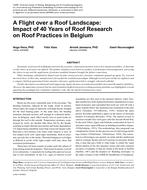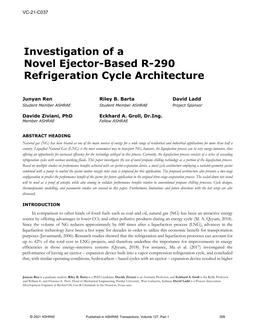The proper design and correct application of fume-hood exhaust systems in medical facilities has always been important. The importance is magnified as researchers reveal the toxic effects of chemicals found in many of these facilities.
A particular hospital may have designated laboratories for any or all of the processes requiring fume-exhaust systems. Histopathology areas have rooms for dissecting, tissue staining, slide preparation, and automatic processing. Other areas requiring fume-hood exhaust are bacteriology and urinalysis rooms, isotope laboratories, and gas-sterilizing locations. The methods of fume removal are as varied as the processes are diverse. Some heavier-than-air vapors may be successfully removed by slots located at and below the counter, while isotope storage locations may best utilize sash-type fume hoods. Portable hoods for laboratory work stations may be most effective in dissecting rooms and for slide preparation.
Medical research laboratories may have processes similar to those found in hospitals, with additional and different procedures required for specific projects. For medical research, laboratory application flexibility in fume-hood exhaust design is of considerable importance. A successful design minimizes energy use and provides flexibility of operation in each laboratory and ease of initial hood installation and removal.
Selection of material and equipment for fume-hood exhaust systems is influenced by the process, the chemical properties of the fumes, the difficulty of duct replacement, and cost. Stainless steel may be the material of choice for duct work, but galvanized steel may also be successfully used.
Understanding the nature of the processes and knowing the requirements of the laboratory staff are essential to a successful installation.
Product Details
- Published:
- 1983
- Number of Pages:
- 13
- File Size:
- 1 file , 1.1 MB
- Product Code(s):
- D-DC-83-10-4
- Note:
- This product is unavailable in Russia, Belarus


